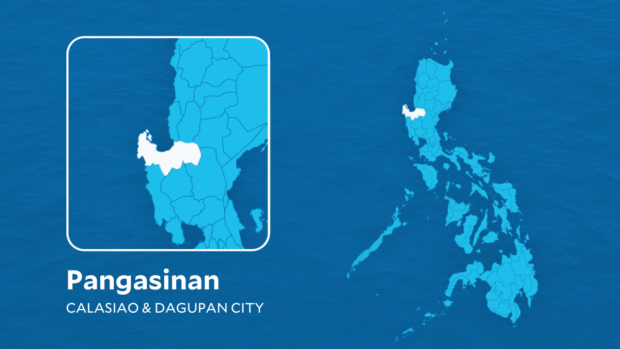
LINGAYEN, Pangasinan, Philippines — Gov. Ramon Guico III on Tuesday asserted the provincial government did not violate the terms and conditions of the P8-billion concession agreement with Manila Water Co. Inc., which terminated their bulk water supply deal effective Dec. 31 last year.
“The contract died a natural death, not because of any violation of any terms and conditions of the contract. We believe that we are not in default,” Guico said at a press briefing here.
He said they were not aware of any conditions that they failed to meet, contrary to Manila Water’s claim that the contract was terminated due to the provincial government’s “nonfulfillment of conditions,” as stated in a stock exchange filing on Jan. 3.
According to the governor, they are willing to renegotiate with Manila Water but the provincial government will welcome other companies that are willing to establish similar projects in the province.
The 25-year contract was made during the administration of former Gov. Amado Espino III in January 2022 and was expected to generate bulk water through an infrastructure that would source water from the Agno River that traverses the provinces of Pangasinan, Tarlac and Benguet, using riverbank filtration technology, supposedly to serve 14 towns and cities in Pangasinan.
One of the provisions in the contract was for the Enrique Razon-led Manila Water and Manila Water Philippine Ventures Inc. to obtain and execute a bulk water supply and purchase agreement (BWSPA) for phase I of the contract from Villasis town and Urdaneta City on or before Dec. 31, 2022.
“In the event that the BWSPAs are not secured in Villasis and Urdaneta by that date, the concessionaire shall not be compelled to commence construction by Jan. 1, 2023,” Baby Ruth Torre, provincial legal officer, said at the briefing.
READ: Manila Water ends supply deal with Pangasinan
READ: Manila Water bares desludging schedule for January 2024
Legal issues
Torre added: “In such an event, the parties shall renegotiate the terms of agreement, and the parties shall exert their best efforts during renegotiation to arrive at mutually acceptable terms.”
Guico recalled that in April last year, Manila Water wrote to the provincial government requesting a meeting to discuss the contract.
The meeting did not push through but provincial officials found some legal questions over how the concession was contracted by the past administration, Torre said.
According to Guico, they wanted to raise these issues and renegotiate with Manila Water and had arranged a meeting with the company later this month. “But we were surprised by the news reports in several national papers that the provincial government is accused of not fulfilling its obligations, when we only wanted to rectify some legal issues,” he added.
Guico said among the legal infirmities involved was the provincial board’s confirmation and approval of the contract on June 28, 2019, when the contract was dated July 3, 2019.
“The contract was already approved before it was even made. Nauna ang kalesa sa kabayo (the cart came before the horse),” Guico said.
Torre also questioned the issuance of a notice of award before the signing of the public-private partnership (PPP) between the parties for the concession agreement.
More infirmities
Based on the concession agreement, Manila Water was supposed to supply water to three cities and 11 towns but the governor said these have their own water districts or private water companies and boards, adding that these localities could not be forced to buy water from Manila Water.
Guico said the contract was signed by former provincial administrator Nimrod Camba who “had no authority to represent the province as it was only the provincial government who had authority to sign the contract, as provided by the [PPP] Code of the province.”
The governor said there was also “no proof of publication of the invitation to apply for eligibility or submit comparative proposals in reference to the PPP provision, and there was no payment of the Performance Security Bond.”